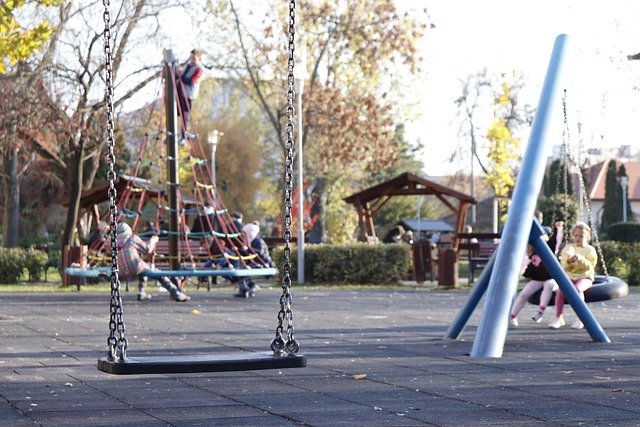Local zoos enhance their educational value by integrating conservation efforts with interactive learning experiences. They offer well-designed exhibits, guided tours, and activities that engage families of all ages, fostering a love for nature and environmental stewardship. Through themed routes, hands-on activities, and workshops, these programs create memorable adventures while promoting biodiversity awareness and potential careers in zoology or conservation science. Measuring success through participant feedback ensures continuous improvement and solidifies local zoos as key educational resources within the community.
Educational family programs and tours play a vital role in fostering environmental awareness among young minds. By partnering with local zoos, communities can offer immersive experiences that combine fun and learning. This article explores strategic approaches for designing engaging tours and incorporating interactive activities tailored to all ages. We delve into choosing the right local zoos, promoting conservation efforts, and measuring success—all aimed at enhancing the educational impact.
- Choosing the Right Local Zoos for Educational Family Programs
- Designing Engaging Tours to Enhance Learning Experiences
- Incorporating Interactive Activities for All Ages
- Promoting Environmental Awareness and Conservation Efforts
- Measuring Success and Planning Future Educational Initiatives
Choosing the Right Local Zoos for Educational Family Programs

When selecting local zoos for educational family programs, it’s essential to look for facilities that prioritize both conservation and interactive learning experiences. These zoos should have well-designed exhibits that showcase diverse animal species in natural, habitat-like settings. Programs offered should be engaging and informative, tailored to cater to various age groups within the family. Look out for activities such as guided tours, feeding demonstrations, and educational talks by zookeepers.
The ideal zoo should also foster a sense of community engagement and participation. Consider institutions that organize regular workshops, special events, and after-school programs focused on wildlife conservation, ecology, and environmental stewardship. Such initiatives not only make learning enjoyable but also instill in children an appreciation for the natural world, potentially sparking future careers in zoology or conservation science.
Designing Engaging Tours to Enhance Learning Experiences

Designing engaging tours is an art that transforms educational family outings into memorable adventures. For local zoos, this involves crafting experiences that cater to diverse age groups and learning styles. A well-structured tour should encourage interaction and exploration, allowing families to discover the wonders of the zoo’s inhabitants. By incorporating interactive elements like guided discussions, hands-on activities, or even virtual reality experiences, these tours become dynamic tools for education.
Zoos can enhance their offerings by creating themed routes, where each stop reveals a unique aspect of animal behavior or conservation efforts. For instance, a “Savanna Safari” might introduce families to the diverse flora and fauna of African ecosystems. Such themes not only captivate but also provide an opportunity to teach valuable lessons about biodiversity and the interdependence of species. Engaging tours thus evolve from simple visits to immersive educational journeys that leave a lasting impression on young minds.
Incorporating Interactive Activities for All Ages

Involving and educating families with interactive activities is a key strategy for local zoos to enhance their appeal and create memorable experiences. By offering engaging programs, zoos can cater to visitors of all ages, ensuring that both children and adults are captivated and learn something new. Interactive tours, such as guided walks or animal encounters, allow families to connect with the natural world on a deeper level. These activities often include hands-on elements like feeding animals, participating in conservation discussions, or even simple games and quizzes designed to test knowledge gained during the tour.
Local zoos can also organize themed events and workshops that encourage participation. For instance, nature photography sessions, art competitions inspired by zoo habitats, or storytelling sessions around campfires can be appealing to different age groups. These interactive experiences not only make family visits more enjoyable but also foster a deeper appreciation for wildlife conservation and ecological awareness.
Promoting Environmental Awareness and Conservation Efforts

Educational family programs and tours play a pivotal role in fostering environmental awareness among children and adults alike. By engaging with local zoos, families can gain firsthand knowledge about various species and their habitats, sparking an early interest in conservation efforts. These visits provide an opportunity to learn about the delicate balance of ecosystems and the impact human actions can have on wildlife.
Through interactive exhibits and guided tours, local zoos offer a unique setting to discuss sustainability practices and the importance of preserving natural environments. Children can explore and understand the interconnectedness of different species, while parents can be inspired to implement eco-friendly habits at home. Such experiences are instrumental in shaping the next generation’s perspective on environmental stewardship, ensuring a brighter future for our planet.
Measuring Success and Planning Future Educational Initiatives

Measuring the success of educational family programs and tours is a vital step in ensuring their long-term impact. By evaluating participant engagement, knowledge retention, and overall satisfaction, local zoos can gauge the effectiveness of their initiatives. This data-driven approach allows for continuous improvement and adaptation to meet the evolving needs of families. For instance, surveys and feedback sessions can reveal what aspects of the program were most appealing, helping zoo staff enhance future events.
Planning future educational initiatives should be informed by these success metrics. Identifying popular themes, age-appropriate activities, and interactive elements that resonate with families will shape the next generation of programs. Moreover, collaborating with local schools and community groups can expand reach and engagement, solidifying the zoo’s role as a trusted educational resource in the community.






